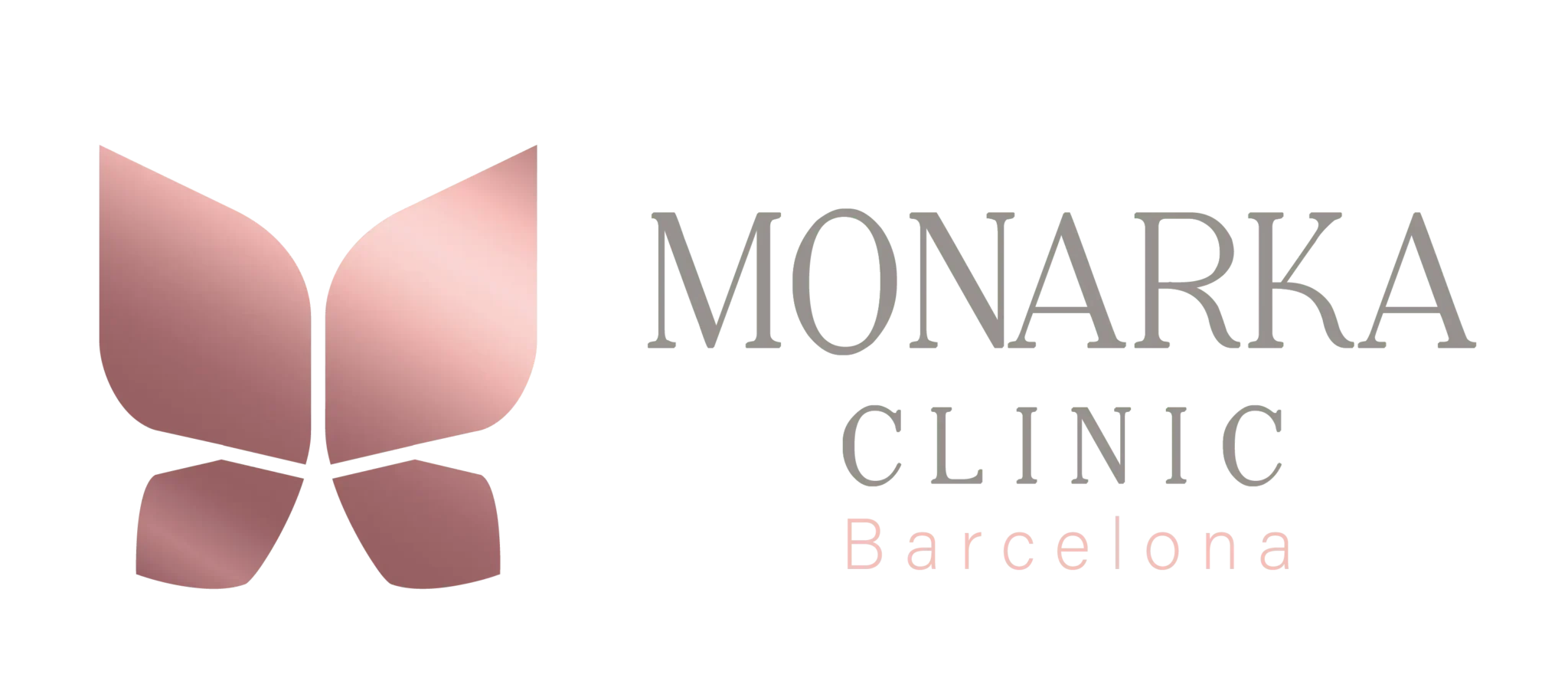Integrative Regenerative Gynaecology
What is integrative regenerative gynaecology?
Integrative regenerative gynecology is an advanced approach that combines traditional medical treatments with innovative therapies such as laser, platelet-rich plasma (PRP), and compounded hormones. It is also complemented by a comprehensive approach that includes nutrition, neuroscience, physical therapy, sleep health, emotional support, and other specialties, allowing us to treat not only gynaecological symptoms but also other factors that impact a woman’s overall quality of life.
Directed by Dr. Raquel Campos, our gynecology and hormonal health unit supports women at every stage of their lives, combining traditional medical treatments with innovative approaches based on integrative medicine and the 5Ps (predictive, preventive, personalized, participatory, and population-based).

Do you need more information and personalized treatment?
Request an appointment now.
Integrative Regenerative Gynecology Treatments
Preventive gynaecological check-ups
Regular checkups are key to detecting any gynecological health problems early. At Monarka Clinic, we provide comprehensive checkups tailored to each woman, including hormonal studies and a comprehensive wellness assessment.
Assessment and treatment of menopause and perimenopause
Menopause and perimenopause are transformative stages that can significantly impact quality of life. At Monarka Clinic, we conduct a comprehensive assessment of each patient, addressing symptoms with a personalised approach:
Hot flashes and night sweats
These are perhaps the most characteristic symptoms. The decrease in oestrogen affects the brain’s thermoregulatory centre, making it more sensitive to temperature changes. This causes sudden hot flashes and sweating, especially at night. These symptoms can be treated with personalised hormone therapy (HRT), bioidentical hormones, and other methods (patches, gels, suppositories, implants, etc.), phytoestrogens, acupuncture, thermoregulation techniques, or cognitive-behavioural therapy to improve daily comfort. In addition to hot flashes, other symptoms related to the decrease in oestrogen can also be treated.
Pain during sexual intercourse and vaginal dryness
Oestrogen is key to maintaining vaginal tissue lubrication and elasticity. When it decreases, the vagina can become drier, thinner, and less elastic, which can cause discomfort and even pain during intercourse. We apply regenerative treatments such as PRP, vaginal laser, and hyaluronic acid, which help restore natural lubrication and improve tissue elasticity.
Memory loss and brain fog
Many women experience difficulty concentrating, remembering things, or experience a mental fogginess. Oestrogen also plays a role in cognitive function, so its decline may influence this. Our neurology, neuroscience, and psychological therapy team collaborates to design strategies based on supplementation, cognitive stimulation, antioxidant therapies, and functional medicine to improve mental clarity and prevent cognitive decline.
Decreased libido
Sexual desire is complex and multifactorial, but hormones, especially oestrogen and testosterone, the latter of which also decreases, albeit to a lesser extent, have a significant impact. Vaginal dryness and pain can also contribute to this decrease. Lack of sexual desire can be addressed with a multidisciplinary approach that includes gynecology, sexology, adaptogen supplementation, and hormone therapy when necessary.
Weight gain and inflammation
Hormonal changes can affect metabolism and body fat distribution, leading to a tendency to accumulate more fat in the abdominal area. They can also influence fluid retention and bloating. We assess each patient’s metabolism and design tailored nutritional plans, combining diet therapy, hormonal management, and support from Chinese and functional medicine.
Joint pain and chronic fatigue
A persistent feeling of tiredness is common. Hormonal changes, sleep problems, and other symptoms can contribute to this fatigue. In addition, some women experience joint and muscle pain during perimenopause and menopause. Although the mechanism is not fully understood, it is believed that the decline in oestrogen may influence inflammation and pain sensitivity. We apply an integrative approach to combat joint pain and treat chronic fatigue. This is achieved through regenerative medicine, physical therapy, targeted supplementation, and other more psychological and emotional techniques to reduce inflammation and improve mobility.
Insomnia and sleep problems
Decreased oestrogen and progesterone levels can disrupt sleep patterns, making it difficult to fall asleep, causing nighttime awakenings, and less restful sleep. We have sleep health specialists who analyse sleep habits and design therapeutic strategies that include neurofeedback and changes in sleep hygiene.
Emotional and mood changes
Hormonal fluctuations and declines can affect the brain’s neurotransmitters, which can lead to irritability, anxiety, sadness, more frequent mood swings, or even depressive symptoms. Humanistic psychology and integrative medicine allow for the development of effective strategies to manage anxiety, stress, and mild depression associated with hormonal changes.
Skin changes
The skin loses elasticity and collagen due to the decrease in oestrogen, which can lead to dryness, wrinkles, and thinning skin. Changes in hair and nails may also occur. We treat the skin with regenerative dermatology protocols, targeted supplements, biostimulation with growth factors, and advanced aesthetic treatments.
Learn about all our treatments
Benefits of our treatments
Improved overall well-being and quality of life.
Reduction of bothersome symptoms of menopause and perimenopause.
Recovery of sexual function and quality of relationships.
Personalized treatments with a 360º approach.
Integration of specialists in different areas for comprehensive care.
Use of advanced technology and regenerative medicine.
Publicado enTrustindex verifica que la fuente original de la reseña sea Google. La Dra Illueta ha sido mi salvadora Entre en quirófano sin poder andar por mi misma , al día siguiente todo había pasado , podía andar y cero dolor , hizo magia !!!! Y como persona podemos ponerle tamb un 10 Gracias a todo el equipoPublicado enTrustindex verifica que la fuente original de la reseña sea Google. He asistido a Monarka clinic para realizarme un tratamiento de hipoxia/hiperoxia. Ha sido una experiencia muy gratificante. No dudo que repetiré. Un diez para el personal que me recibió, así como los profesionales que estuvieron pendientes de mi en todo momento. Altamente recomendable.Publicado enTrustindex verifica que la fuente original de la reseña sea Google. Desde el primer momento en que llegué a la clínica, supe que estaba en buenas manos. El equipo médico es muy atento y comprometido. Me sorprendió gratamente la atención personalizada y el enfoque de la clínica. No se trata solo de vivir más años, sino de vivirlos con calidad y vitalidad. Recomiendo la Clínica a cualquier persona que quiera invertir en su salud y ser su mejor versión ;)Publicado enTrustindex verifica que la fuente original de la reseña sea Google. Tracte excelent des del primer a l'últim. Gràcies especials al Francesc SansaPublicado enTrustindex verifica que la fuente original de la reseña sea Google. Recomendable 100%. El equipo de médicos y otros profesionales son muy cercanos, humanos y sobre todo grandes profesionales. En mi caso, me ha gustado porque han ido más allá de lo evidente y me están tratando desde todos los ámbitos para tener controladas unas alteraciones causadas por una autoinmunidad. Después de años de visitar distintos profesionales aquí he conseguido que un Equipo médico me siga compartiendo entre ellos los avances y los abordajes necesarios para mí. Desde que soy paciente mi Salud ha mejorado notablemente y sigo en ello!!Publicado enTrustindex verifica que la fuente original de la reseña sea Google. Cansada de mutues… vaig estalviar per buscar ajuda a on t’escoltin i tajudin de veritat. Dra Lladó, m’ha tret mals de panxa, inflamacio…m’ha millorat el son il’ energia!, tot amb paciència i gràcies al seu informe personalitzat ple de pautes. A més, va aconsellar-me terapia amb Montse Escobar per rebaixar l’ansietat i preocupacions, quin encert!!Recomano Monarka clinic 100%, per fi em trovo bé. Els diners millor invertits!🙏🏻Publicado enTrustindex verifica que la fuente original de la reseña sea Google. Vaig arribar a Monarka Clinic per la Dra. Illueca, que va tractar el meu dolor cervical de manera excepcional i em va donar recomanacions que m’estan permetent millorar molt a nivell físic i mental. També soc pacient de la Mari Àngels Frias, especialista molt top que m’acompanya a que l’alimentació i l’estil de vida ajudin a remetre el meu dolor. Recomano Monarka al 100%.Publicado enTrustindex verifica que la fuente original de la reseña sea Google. Por fin una clinica donde buscan el origen de tus sintomas sean físicos o psicológicos y donde disponen de los tratamientos más novedosos en longevidad. Hacerse mayor no tiene que ser doloroso ni discapacitante. Mi clínica de referéncia a partir de ahora. Gracias MonarkaVerificado por: TrustindexLa insignia verificada de Trustindex es el símbolo universal de confianza. Solo las mejores empresas pueden obtener la insignia verificada si tienen una puntuación de revisión superior a 4.5, basada en las reseñas de clientes de los últimos 12 meses. Leer más
Frequently Asked Questions
What is perimenopause and menopause?
Women’s health is a complex universe, with each stage of life bringing changes that can affect physical and emotional well-being. At Monarka Clinic, we approach gynaecology from a 360-degree perspective, integrating regenerative medicine, neuroscience, physical therapy, Chinese medicine, nutrition, sleep health, and advanced technology to offer personalized and effective solutions.
Perimenopause is that transitional period, like a “pre-menopause,” when hormone production begins to fluctuate and decline. It can begin several years before menopause and is when many women begin to notice the first symptoms.
Menopause itself is defined as the moment in which you have gone 12 consecutive months without menstruation. This marks the definitive cessation of ovarian function. After menopause, we enter postmenopause.
When should I see a regenerative gynaecologist?
If you experience symptoms such as vaginal dryness, urinary incontinence, sexual dysfunction, or persistent gynaecological discomfort, a consultation with our specialists can help you find personalised solutions.
Are regenerative medicine treatments safe?
Yes, at Monarka Clinic we use scientifically proven technologies and therapies, always under medical supervision to ensure safety and effectiveness.
Can I receive treatment if I am in perimenopause?
Yes, the earlier an evaluation is performed, the better the results for preventing and treating symptoms early.







